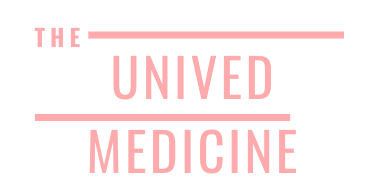The Benefits Of Medication Assisted Treatment For Alcoholism
Alcoholism is a serious and chronic disease that affects millions of people around the world. It is a disorder that not only harms the individual suffering from it but also their loved ones. Alcoholism can be treated with a variety of approaches, including counseling, support groups, and medication-assisted treatment (MAT). Medication-assisted treatment has been found to be an effective approach to helping individuals overcome an alcohol addiction, and it comes with several benefits. In this article, we will discuss the benefits of medication-assisted treatment for alcoholism.
What Is Medication-Assisted Treatment (MAT)?
Medication-assisted treatment (MAT) is a comprehensive approach to the treatment of addiction that involves the use of medication in combination with counseling and behavioral therapies. MAT is most commonly used to treat addiction to opioids, such as heroin and prescription painkillers, but it can also be used to treat alcohol addiction.
The medications used in MAT for alcohol addiction work by reducing cravings and withdrawal symptoms, which can help individuals stay sober and improve their chances of recovery. The two most common medications used in MAT for alcohol addiction are naltrexone and acamprosate.
Naltrexone blocks the euphoric effects of alcohol and reduces cravings, while acamprosate helps to restore the balance of neurotransmitters in the brain that are disrupted by alcohol use. MAT can also involve the use of benzodiazepines or anticonvulsants to manage withdrawal symptoms.
Benefits Of Medication-Assisted Treatment For Alcoholism
Reduced Cravings
One of the most significant benefits of medicated assisted treatment for alcohol is the reduction of cravings. Alcohol cravings can be intense and can often lead to relapse. Medications like naltrexone help to reduce the intensity of cravings, which can help individuals stay sober.
Improved Treatment Outcomes
Studies have shown that medication-assisted treatment can improve treatment outcomes for alcohol addiction. In one study, individuals who received naltrexone as part of their treatment were more likely to remain abstinent and had fewer relapses than those who did not receive medication.
Another study found that individuals who received acamprosate were more likely to remain abstinent for longer periods than those who received a placebo. Medication-assisted treatment has also been found to reduce the risk of overdose and other complications associated with alcohol addiction.
Reduced Withdrawal Symptoms
Withdrawal symptoms can be a significant barrier to recovery for individuals with alcohol addiction. Medications like benzodiazepines and anticonvulsants can help to manage withdrawal symptoms and make the detoxification process more comfortable.
By reducing the severity of withdrawal symptoms, medication-assisted treatment can help individuals stay engaged in treatment and improve their chances of successful recovery.
Greater Engagement In Treatment
Another benefit of medication-assisted treatment for alcoholism is that it can help to improve engagement in treatment. Individuals who receive medication as part of their treatment are more likely to stay engaged in treatment and attend counseling sessions.
By improving engagement in treatment, medication-assisted treatment can help individuals build a strong foundation for their recovery and develop the skills and strategies they need to maintain sobriety.
Reduced Risk Of Relapse
Relapse is a significant risk for individuals with alcohol addiction, and it can be challenging to manage. Medication-assisted treatment can help to reduce the risk of relapse by reducing cravings and withdrawal symptoms.
By providing individuals with the tools they need to manage cravings and withdrawal symptoms, medication-assisted treatment can help to improve their chances of staying sober and avoiding relapse.
Improved Quality Of Life
Alcohol addiction can have a significant impact on an individual’s quality of life, including their physical health, mental health, and relationships. Medication-assisted treatment can help individuals overcome addiction and improve their quality of life by reducing the negative consequences associated with alcohol use.
Additionally, medication-assisted treatment can help to improve relationships by reducing the impact of alcohol use on family, friends, and loved ones. By reducing the negative consequences associated with alcohol addiction, medication-assisted treatment can help individuals rebuild relationships and improve their overall quality of life.
Customized Treatment
One of the unique benefits of medication-assisted treatment for alcoholism is that it can be customized to meet the specific needs of each individual. Different medications can be used depending on the individual’s needs, and the dosage can be adjusted based on the individual’s response to the medication.
Additionally, medication-assisted treatment can be used in conjunction with other therapies, such as counseling and support groups, to provide a comprehensive approach to treatment.



